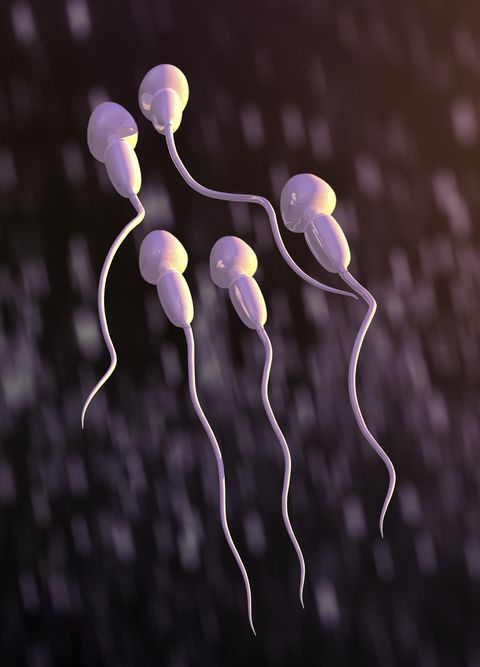
You might have your qualms about winter — shoveling out cars, freezing temps, whipping winds — but could colder weather be prime time for your swimmers?
For years, scientists have been trying to find a link between the seasons and sperm quality, with some research suggesting sperm may indeed favor chillier months. Take one Italian study published in Chronobiology International — it found men produced more sperm in the winter than the summer.
Both sperm count (how many sperm cells are in semen) and motility (how quickly they move) also increased in the winter, according to another Israeli study of over 6,000 semen samples published in the American Journal of Obstetrics and Gynecology. They found that sperm count and motility peak in spring and decline in summer and fall.
Before you hit the sheets revved up and ready to go, know this: Seasonal sperm quality research isn’t quite so cut and dry — or, err, strong for that matter. For example, that Italian study? It also found that while guys have more sperm in winter, their sperm is faster in the summer. And Chinese researchers found almost the exact opposite: weak summer sperm, and speedy winter and spring sperm. And the largest retrospective study to date with over 29,000 sperm samples over a span of 17 years found that sperm is strongest right after winter thawed out (for Americans, at least).
So, what do we know (if anything)? Sperm does change seasonally, but the exact differences vary depending on location, says Amos Grunebaum, M.D., a reproductive health specialist and director of obstetrics and chief of labor and delivery at the NewYork-Presbyterian Weill Cornell Medical Center in New York City. The reasons for the differences are unknown. Plus, seasons are, well, different in different countries or continents, Grunebaum notes.
Getty ImagesVICTOR HABBICK VISIONS/SCIENCE PHOTO LIBRARY
And while doctors and researchers know that heat can reduce sperm quality by lowering sperm production and even killing sperm cells, other factors, such as lifestyle habits (heavy drinking and a lack of exercise = not as healthy sperm) are far more important than the season, says Michael Alper, M.D., a reproductive endocrinologist at Boston IVF, a fertility center in Boston, MA. “Some research on the seasonality of human reproduction exists, but the data is weak.”
Bottom line: You’re better off eating healthier foods and increasing fitness than banking on your swimmers’ capabilities in colder months. Make easy changes by incorporating morning yoga into your routine for two weeks. Practicing five days a week could significantly reduce levels of harmful oxidative stress in the body and boost virility in just 15 days. And don’t forget to load up on fish — it’s a key source of omega-3 fatty acids, which dial-up sperm production and quality.
Source: Read Full Article
